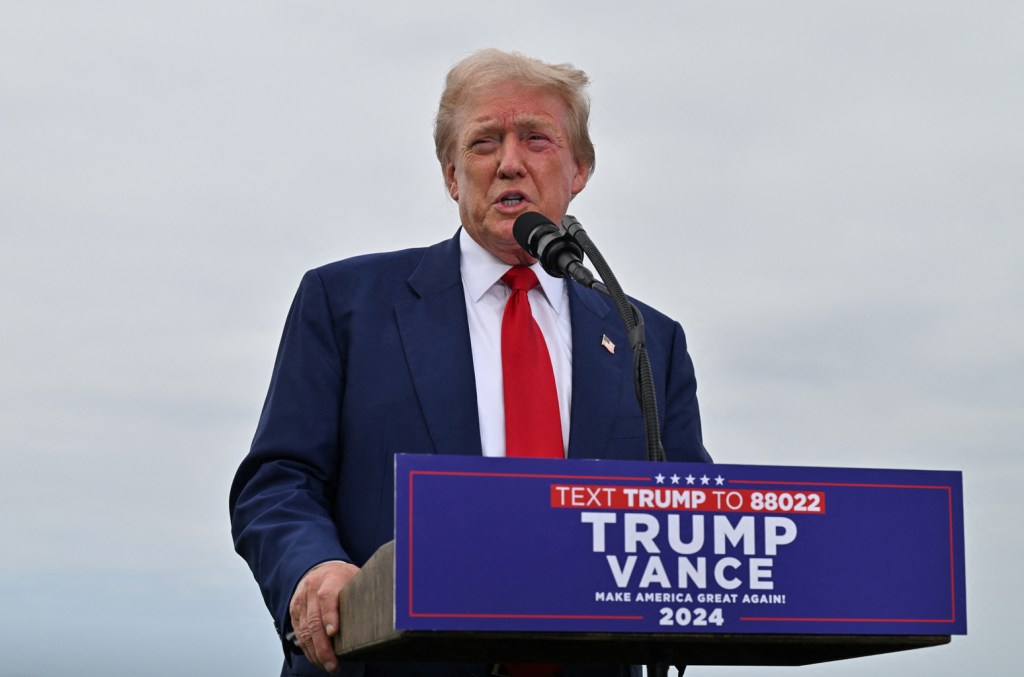Donald Trump violated copyright by using Eddie Grant's iconic “Electric Avenue” in a 2020 campaign video without permission, a federal judge ruled Friday (Sept. 13), rejecting Trump's argument that he made legal use of the song.
Grant sued Trump in 2020 after the then-President used the 1982 hit in a social media video and attacked Joe Biden. Grant said he reacted with “disappointment” when he began receiving inquiries asking if he had approved of the Republican nominee's use of his music.
Trump's lawyers have argued that the video is protected by the fair use doctrine of copyright, which allows for “transformative” reuse of protected works in certain circumstances. But in Friday's ruling, Judge John G. Koeltl categorically rejected this argument.
“In this case, the video has very little, if any, transformation,” the reviewer wrote. “The video is best described as a rough copy of music accompanying a political campaign ad.”
After the ruling, Grant's attorney Brian D. Kaplan said his client was “pleased” with the judge's ruling: “As a believer in artists' rights and ability to control their creative output, Mr. Grant believes the decision will help others in their fight against unauthorized use recordings and musical compositions. Politicians are not above the law and the court reaffirmed that.”
A spokesman and a lawyer for Trump's campaign did not immediately return requests for comment.
Trump has repeatedly faced blowback amid the 2024 election from artists who don't want him to use their music. Beyoncé, Celine Dion, Foo Fighters, ABBA and the estate of Sinead O'Connor have spoken out or threatened action, and the White Stripes and the estate of Isaac Hayes have filed lawsuits against him and his campaign.
Four years earlier, Grant filed a similar case over Trump's “incorrect and deliberate” use of “Electric Avenue,” a funky, reggae-infused track about the 1981 Brixton riots, named after a street which runs through this neighborhood of London. The song reached No. 2 on the Hot 100 in the summer of 1983 and eventually spent 22 weeks on the chart.
The video in question, shared by Trump on Twitter, featured a red “Trump” train driving past the swinging Biden, as audio clips of Biden's speeches played over Grant's 1982 hit. Grant's lawyers they said the campaign had refused to remove the video even after they were warned – meaning Trump was acting as if he was “above the law”.
Countering those claims, Trump's legal team argued that the video amounted to fair use, arguing that the campaign had turned Grant's song into a vehicle to criticize Biden. In 2021, Judge Koeltl hinted that he would likely reject that argument on the grounds that it “misunderstood” how fair use works, but said it was too early to decide the issue.
On Friday, the judge followed through on his warnings, adopting much the same reasoning as his 2021 ruling. He noted that Trump's video “did not edit the lyrics, vocals or instrumentals of the song in any way” and “did not offer no excuse for their extensive borrowing.”
Trump's lawyers argued that the video “transformed Grant's original conception of 'Electric Avenue' as a protest against social conditions into a colorful attack on the character and personality traits of a rival political figure.” But the judge wasn't entirely swayed by that defense — saying it would count as fair use only if Trump had used the song to attack Grant, not Biden.
“The animation does not use 'Electric Avenue' as a vehicle to deliver its satirical message and makes no attempt to mock the song or Grant,” Judge Koeltl wrote, quoting directly from his earlier ruling.
Friday's ruling means Trump and his campaign have been held legally liable for copyright infringement, but leaves undecided how much he must ultimately pay Grant in damages. The issue will be resolved in future proceedings.



